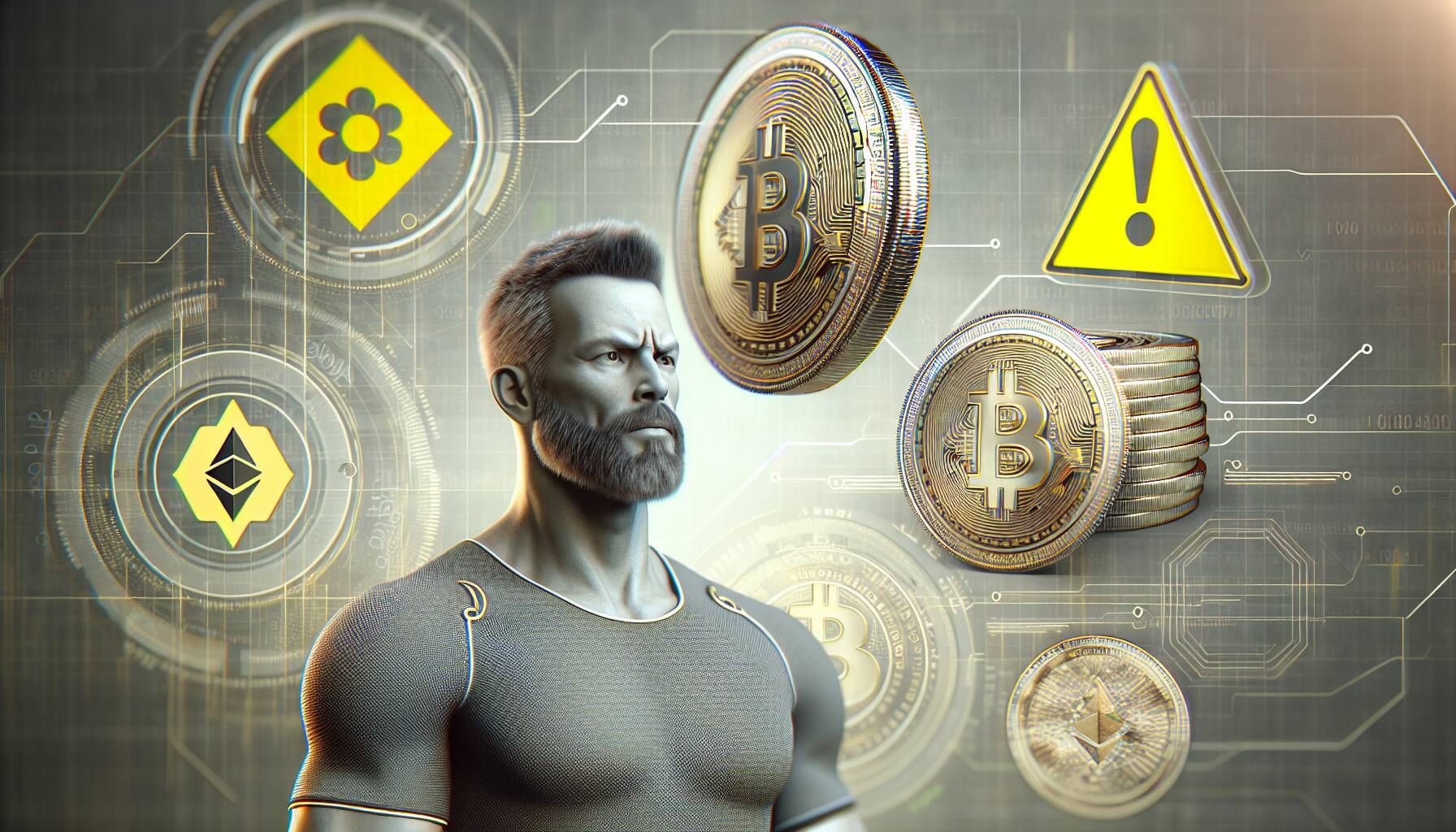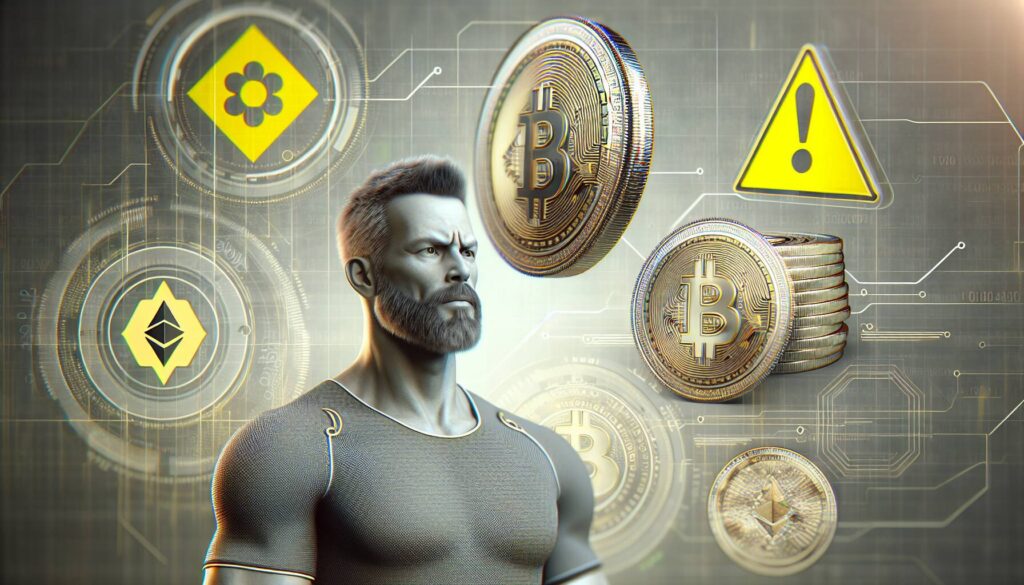In the colorful world of cryptocurrencies, few personalities stand out like Dave Portnoy, affectionately nicknamed “El Presidente.” Renowned for his larger-than-life presence as the founder of Barstool Sports, Portnoy is no stranger to the ups and downs of digital assets. Recently, in an insightful interview with CoinDesk, he candidly expressed his reluctance to launch a memecoin—a decision stemming from his desire to protect his fans from potential losses.
“I got involved in memecoins because I wanted to launch a Barstool memecoin, but I didn’t want my fans and followers to lose money,” Portnoy revealed.
Memecoins, often labeled as “legalized Ponzi schemes” by Portnoy himself, have surged in popularity despite the risks associated with them. While they aren’t recognized as legal in the U.S., their allure has captivated many. However, Portnoy’s previousforays into this territory have raised eyebrows. Earlier this year, he launched the memecoin GREED, which saw a meteoric rise to a market cap of $41.5 million, only to later sell his substantial holding in a single transaction that caused the value to plummet. This move reportedly netted him around $258,000 but left some of his followers nursing losses.
“I warned people I could sell. I could have cashed out +1 million… Some people won. Some lost. Only the losers keep bitching,” he stated on X.
Portnoy’s introduction to trading during the COVID-19 pandemic led him down a path filled with both exhilarating gains and crushing losses in stocks and cryptocurrencies alike. He reminisced about his unconventional trading methods, such as literally pulling letters from a Scrabble bag to decide on stocks. His journey into Bitcoin has been equally tumultuous—though he acknowledges its major influence in the finance world, he admits to often being on the wrong side of its market fluctuations.
Despite his mixed feelings, Portnoy has dabbled in various cryptocurrencies, including XRP, and even sold an NFT connected to his famous One Bite Pizza Reviews for a whopping $138,000. Yet, he confessed a lack of understanding when it comes to integrating blockchain technology with Barstool’s business model, reflecting on past experiences where big promises from the crypto community didn’t materialize as expected.
“Crypto is the league leader in people telling you what [you] should be doing, and it’s also the league leader in people I don’t trust,” he commented.
Fascinatingly, Portnoy has developed a love/hate relationship with the crypto community, expressing admiration for their humor and uniqueness while remaining cautious about taking their advice. As he prepares to share more insights about his crypto journey at Consensus 2025 in Toronto on May 15, the worlds of sports entertainment and cryptocurrency continue to intersect in unpredictable ways.

Dave Portnoy’s Stance on Memecoins and Crypto
Dave Portnoy, popularly known as “El Presidente,” shares his insights on memecoins and cryptocurrency. Here are key points about his perspective and experiences:
- Cautious Approach to Memecoins:
Portnoy refrains from launching a Barstool memecoin out of concern for his followers potentially losing money.
- Concerns Over Value:
He views memecoins as “legalized Ponzi schemes,” emphasizing the need for quick trading to avoid losses.
- Experiences with GREED:
Launched the GREED token, which peaked at a market cap of $41.5 million, but he sold all his shares causing the price to crash.
- Financial Gains and Losses:
Portnoy reportedly made $258,000 from his GREED sale, which highlights the volatile nature of the crypto market.
- Trading Journey:
Started trading during the COVID-19 pandemic; his YouTube channel showcased his trading methods, which varied significantly.
- Relationship with Bitcoin:
Portnoy has a complicated view of bitcoin, recognizing it as essential to finance but acknowledging his missed opportunities.
- Lack of Understanding:
Despite his ventures into crypto, he admits to not fully grasping how blockchain technology can enhance his business model.
- Mixed Feelings About Crypto Community:
While expressing distrust towards the crypto community, he finds them entertaining and acknowledges their influence.
- Future Engagements:
Portnoy plans to further discuss his experiences with crypto at Consensus 2025 in Toronto.
“Crypto is the league leader in people telling you what [you] should be doing, and it’s also the league leader in people I don’t trust.”
Dave Portnoy’s Candid Stance on Memecoins: Analyzing Risks and Rewards
In the buzzing world of cryptocurrency, few figures capture attention quite like Dave Portnoy, affectionately dubbed “El Presidente.” However, unlike many cryptocurrency enthusiasts, Portnoy adopts a cautious stance towards the notorious memecoins, expressing both skepticism and a desire to protect his followers from potential losses. This perspective positions him uniquely in the broad arena of digital currencies, where speculation often overshadows prudence.
Competitive Advantages: What sets Portnoy apart is his authenticity; his followers trust him for his candidness about the risks associated with memecoins. He openly categorizes them as “legalized Ponzi schemes,” offering a refreshing dose of realism in an environment typically rife with over-the-top enthusiasm and risky hype. While many crypto celebrities promote their tokens without acknowledging the inherent dangers, Portnoy’s desire to shield his fans resonates with a demographic that may be less informed about the volatile nature of such assets. Furthermore, his brand leverages his existing media empire at Barstool Sports, allowing for a unique platform to engage with a youthful audience keen on new investment avenues.
Disadvantages: However, this cautious approach could alienate some in the crypto community who advocate for a more adventurous investment strategy. By refraining from launching a Barstool memecoin, Portnoy may miss out on potential lucrative ventures, especially given the success of his earlier token, $GREED, which saw a massive spike before his strategic exit. His confession that he lacks a full understanding of blockchain technology may also be seen as a liability in a field that values knowledge and expertise. It underscores a paradox: while he draws a line to avoid misleading fans, he also exposes himself to critiques about his knowledge of the core technology that could affect his credibility among hardcore crypto enthusiasts.
Portnoy’s actions and opinions may create a double-edged sword for both casual investors and the broader cryptocurrency industry. On one hand, his honesty may protect inexperienced investors from poor financial decisions, potentially reducing the number of losses among his followers. Conversely, this approach could also curtail the overall enthusiasm for memecoins among his audience, possibly stifling innovation and reduced engagement within this niche segment of the market. Investors drawn to the excitement of competing memecoins may find themselves disillusioned by Portnoy’s hesitance to fully embrace the genre.
Ultimately, Portnoy’s views on memecoins and cryptocurrency at large will indeed impact how both his followers and the broader market approach risk and investment. Will they value prudence over potential profits, or will Portnoy’s message get lost amidst the chaos of crypto? Only time will tell.

















